Career Profiles of Health System Impact Fellow alumni
| Profile: |
|---|
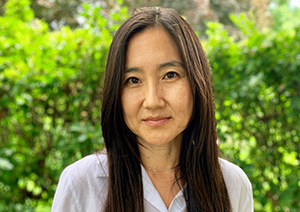
Dr. Jennie HawJob title: Scientist Since 2019, I’ve been a Scientist in the Centre for Innovation at Canadian Blood Services. I obtained this position following the completion of a two-year CIHR Health Systems Impact Fellowship. The Fellowship provided me with an opportunity to work with Dr. Dana Devine (Chief Scientist, Canadian Blood Services) and Dr. Jessica Polzer (Associate Professor, Western University) on a qualitative process evaluation of Canadian Blood Services’ national public cord blood bank. Working on this project, I gained a deeper understanding of the blood operator and its role within health and social systems and the value of impact-driven research. As a sociologist with expertise in health and health systems, I bring a disciplinary perspective and skill set that make a unique contribution to the research conducted by the blood operator. Currently, I develop and lead research studies that focus on donor engagement and donor policy to optimize organizational operations and contribute to academic scholarship. In addition, I’m an Adjunct Research Professor in the Department of Health Sciences at Carleton University. This role provides me with additional opportunities to bridge the academic and health system domains. I’m currently supervising both undergraduate and graduate students on research projects that enable students to develop research skills by conducting studies that are designed to have an impact by addressing organizational needs. |
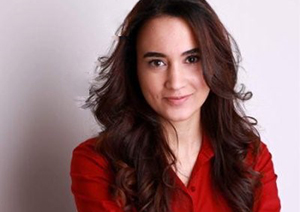
Stephanie AboueidJob title: Senior Consultant As a healthcare consultant in strategy, my work consists of conducting primary and secondary research to assess market opportunities and trends; developing business models as well as strategic and operational plans to meet business objectives; identifying investment opportunities in the health and life sciences landscape; and developing practical plans to address pressing healthcare challenges such as the COVID-19 pandemic. Some elements of research are being applied in my consultancy work through the application of my skills in conducting rapid reviews as well as qualitative and quantitative research methods and data analyses. A typical day consists of conducting research, understanding client needs, and developing documents that address clients’ main challenges and asks. Meetings with various stakeholders are also part of my daily routine. A skill that I found vital for my work is the ability to translate information and recommendations in a practical manner. What I like most about my job are the opportunities that I have to apply my skills as well as learn from other people with varying educational and experiential backgrounds. The main factors that attracted me to KPMG are its culture and inclusiveness. The people I work with at the firm are the best part of my job. My advice for current graduate students is to apply for fellowships such as CIHR’s Health System Impact Fellowship. Doing so allows you to explore career paths outside of academic. The HSI fellowship cohort was incredible and I’m happy about the friends I have made throughout this experience. My other advice is to examine a company’s culture prior to accepting a job position. You spend most of your life at work, make sure you enjoy what you do and the people you work with. I am grateful to be able to work for such a great firm. Network, attend presentations, and always keep learning – you never know when the right opportunity will come knocking. Luck is what happens when preparation meets opportunity. |
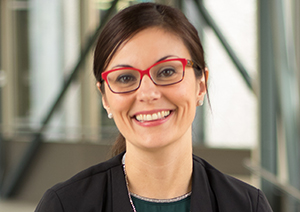
Dr. Katie AubrechtJob title: Canada Research Chair Health Equity & Social Justice; Assistant Professor, Department of Sociology; Director, Spatializing Care: Intersectional Disability Studies Lab I am a Canada Research Chair Health Equity and Social Justice and sociology professor at St. Francis Xavier (St.F.X.) University in Antigonish, Nova Scotia. I teach courses on intersectoral health policy, social policy, disability and culture, and race and identities. I lead collaborative interdisciplinary health services and policy research on aging with a social determinants of health perspective. This research focuses on marginality, mental health, rurality and resilience across the life span as health equity and social justice issues. The overall purpose of this research is to generate new knowledge to enhance the quality of mental health care, and the self-perceived mental health and wellness of diverse populations living in rural communities, with a focus on Atlantic Canada. I work in partnership with researchers at other universities, other HSI alumni and fellows, community organizations, health system decision makers, students and trainees at the Spatializing Care: Intersectional Disability Studies Lab. I also work closely with colleagues from the National Collaborating Centre for Determinants of Health and Coady International Institute, both located at St.F.X. My job provides an opportunity to learn from and with communities about what health means, why health matters, what health issues should be prioritized and how they should be addressed. The skills in leadership, mentorship and collaboration that I developed through the HSI fellowship training have been invaluable in securing and advancing in my role. My advice to current students is to seek out opportunities that will support you in building relationships and bridging institutions and organizations. |
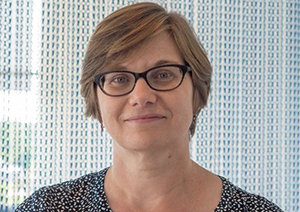
Dr. Heather Campbell-EnnsJob title: Assistant Professor of Psychology I am an Assistant Professor and I enjoy the variety that comes with academic work and interacting with many people. My research focuses on the experiences of older adults and their informal care partners. I also teach first year and upper-level seminar classes, and I spend a great deal of time training students in research. After moving my program of research from my HSI Fellowship to the university, I was awarded a CIHR grant and a Research Manitoba grant in my first year. My HSI Fellowship prepared me for this role by connecting me to a network of decision makers and researchers who I continue to work with today. This network holds me accountable to carry out research that either answers questions being asked by the health system or creates solutions for gaps in care. Being a HSI Fellow was important to me because I wanted to learn more about a specific field of study that I was not exposed to in my doctoral program, and I wanted to explore career options. I encourage Fellows to be open to the many opportunities that will come your way but be discerning. Explore opportunities but do not chase those that are not a good fit, and do not be afraid to set aside opportunities where you do not feel you will make an impact. You need to dive into your fellowship but do not forget to be yourself and make time to figure out who you are becoming as an independent researcher. |
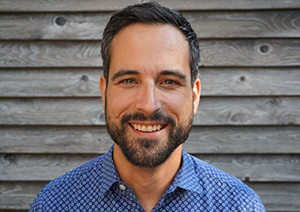
Dr. Olivier Demers-PayetteJob title: Professionnel scientifique en méthodologie As a scientific professional in methodology, I support my organization in advancing patient and public involvement in health technology assessment (HTA). I advise project teams in the implementation of best practices from qualitative and participatory research. I lead methodological developments to improve the mobilization and integration of patient and public perspectives within my organization and to better understand their importance for HTA. Besides, I work on INESSS strategic indicators and its impact assessment. I collaborate with different teams within INESSS, but also with pan-Canadian and international initiatives. It's far from routine! Having a job that combines my interests in issues related to medical innovations, the improvement of the health and social services system and the participation of patients and citizens in health technology choices, I can say that I am lucky! At INESSS, you feel you can have a real and systemic impact. With the variety of evaluation projects, alongside competent and dedicated people, the opportunities for me to learn are endless. Since INESSS hosted me during my fellowship, the HSIF program has necessarily contributed to all of this! Beyond offering a chance to prove yourself, the program allows you to reflect on your professional skills and act to develop others with the wise help of an institutional mentor. It also allows you to become part of a dynamic community of young leaders. Several opportunities will arise during your fellowship. Don’t hesitate to get out of your comfort zone and try new things! |
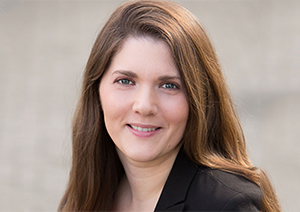
Dr. Lindsay HeddenJob title: Assistant Professor/Assistant Scientific Director In my role with BC’s Academic Health Science Network, I am working at the intersection of research, practice, and policy by conducting foundational work on the development, implementation and evaluation of the Learning Health System model across the province. At the same time, I am continuing to lead an independent program of research with a focus on primary care within the SFU Faculty of Health Sciences. My impact fellowship with the BC Ministry of Health was a crucial in preparing me for this work. It provided in-depth experience in working within a fast-paced policy environment and connected me to the policy and decision makers I continue to work with in my current role. It also helped me to develop my leadership, communication and project management skills that have been critical for working in an applied/partnered research environment. My advice to current graduate students is to recognize that there are many ways to apply your academic and intellectual skills outside of traditional academic roles. These careers – blended ones, like mine, and others that are completely outside of the traditional academia – are thankfully becoming more commonplace. Be open exploring these options. Also, I cannot overstate the importance of building your networks outside of the academy. A multi-disciplinary, multi-professional network of mentors and collaborators can open many doors. |
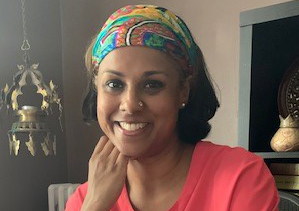
Dr. Sameera HussainJob title: Senior Policy Analyst As a solo parent of three children--very much a full-time job – I also have a full-time contract working on COVID-19 Response and Recovery at the Public Health Agency of Canada. I am situated at the centre of action, at the Office of Strategic Policy and Planning. A typical day with its Research and Analysis team involves preparing ministerial briefings, conducting environmental scans of emerging research, and building processes for policy innovation within the Agency. Overall, my role is that of knowledge broker and innovator to effectively connect cutting-edge research to the policy space. My research career remains active: I successfully developed, with partners at the University of Toronto, a Social Sciences and Humanities Research Council (SSHRC) Insight Grant that examines whole-of-government approaches to the UN Sustainable Development Goal agenda with a focus on health and well-being. I am on the Editorial Board of Globalization and Health Journal, where I recently published a special journal issue on intersectoral approaches to health, which was funded by my Fellowship and the World Health Organization’s Alliance for Health Policy and Systems Research. The HSIF has enriched my core competencies, particularly around leadership, change management, and knowledge translation. I recommend the program to action-oriented people who wish to see policy rooted in good science. At the Agency, I especially enjoy the part of my job that allows me to work across the boundaries of academia, civil society, and decision-making, where I can contribute my unique skill set to help our country recover from the current global health crisis. |
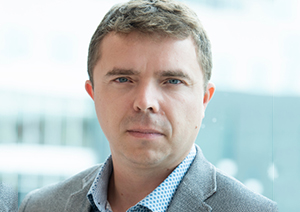
Dr. Andriy KovalJob title: Assistant Professor I study how people engage health systems over the course of their lives. As an Assistant Professor at the Department of Health Management and Informatics at the University of Central Florida I combine my training in longitudinal modeling, reproducible analytics and data visualization to investigate patients’ engagement with health services. I teach courses in Health Care Analytics, Epidemiology, Quality Improvement, and Biostatistics. The best part about being a statistician, as John Tukey remarked, is that you “get to play in everyone’s backyard”, which is certainly true about my job. I spend a considerable amount of time establishing and cultivating relationships with local community partners: Homeless Services Network of Central Florida, Orange County Health Department, Orlando Veterans Affairs, as well as various research groups within the university. My role on most projects involves design of data collection protocols and analytic workflows, including data visualization and statistical modeling with tools of reproducible research, such as RStudio and GitHub. One of the most valuable skills I developed during my HSI Fellowship as an embedded researcher was fluency in interdisciplinary communication. Combining expertise on applied projects, I as continue to learn, is the key to both making an impact and staying excited about what you do. A research career, as it becomes increasingly evident to me, is a marathon, a sustained effort, the success in which depends on your ability to well intellectual stimulation and emotional support from your social environment. |
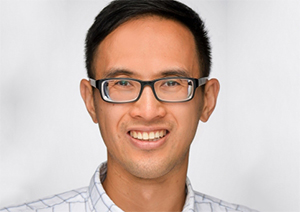
Dr. Jonathan LaiJob title: Director of Strategy and Operations I’m currently the Director of Strategy and Operations at the Canadian Autism Spectrum Disorder Alliance (CASDA), a collective of Canadian autism organizations. I’m responsible for running all facets of the organization. Using a collective impact approach with stakeholders, I work with the federal government as they develop the National Autism Strategy. My work involves building consensus among stakeholders, finding alignment between organizations, and translating evidence into policy. The job is never boring. Strategy in a complex environment is iterative. Although I don’t do research first-hand, I work alongside researchers to build systems toward a more efficient and rapid learning system in the sector. This job requires project management and analytical skills - a foundation we all refine in our training. Leadership and facilitation are also crucial. Above all these, humility is key to staying grounded and to growing as a leader. In the past, leadership was a position, in our knowledge economy, leadership is a choice. The HSIF give me the opportunity to grow these skills by placing me in environments to apply and make these skills my own. Through my HSIF, I was also able to strengthen my network and that has led me to my current position. My advice to current trainees is to recognize an impediment to getting good at something is being ok with so-called ‘failures’ at the beginning. Be open and explore new possibilities in this stable environment of training – your self-awareness and career options may change as a result! |
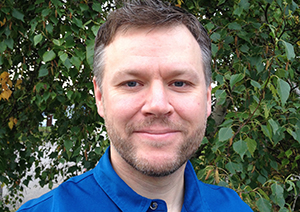
Dr. Matthew MenearJob title: Researcher I am currently a Researcher at the VITAM Research Centre for Sustainable Health and Adjunct Professor in the Department of Family Medicine and Emergency Medicine at Université Laval in Quebec City. Research makes up about 95% of what I do, but I also do a small amount of teaching and committee work. I have had the opportunity to learn about different types of healthcare-related jobs in my career but ultimately feel most comfortable in an academic role. For more than 20 years I have done research on various topics related to mental health, from more basic neuroscience research when I first started to the more applied health services and policy research that I do now. For the last 10 years my main focus has been on strengthening mental health services in primary care. This is consistent with my training in public health but also with my own personal experiences having people close to me either work in primary care or seek mental health services in these settings. I’m motivated by the fact that I find it unfair that so many people with common mental health problems continue to have such negative care experiences. I consider it a privilege to do research that allows me to partner with clinicians, managers and policymakers to make our health system better. My Fellowship within INESSS really helped to fast-track my understanding of how change within the health system can happen, what the barriers are, and more importantly what conditions are needed for real improvements. |
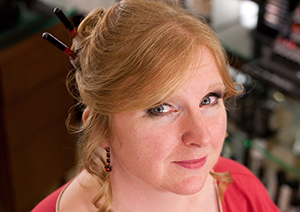
Dr. Frances Morton-ChangJob title: Director of Seniors Services and Assisted Living As an embedded researcher at AdvantAge Ontario during my CIHR Health Systems Impact Fellowship I had the privilege of researching senior’s campuses – innovative care continuum models that geographically co-locate mixed income housing and community supports with long-term care. I visited six campuses across the province for a comparative case study where I conducted interviews with providers and partner organizations and enjoyed a range of campus activities and amenities. This research highlighted many benefits at an individual, organizational and system level and a number of policy barriers and opportunities. The experience inspired me to accept the role of Director of Seniors Programs and Assisted Living at Woodgreen (WG) Community Services where I oversee a large portfolio of essential community services and supports (e.g., Supportive Housing/Assisted Living/Cluster Care, Meals on Wheels, Transportation, Caregiver Wellness, Adult Day Programs, Seniors Active Living Centres). As a “pracademic” I lead a dedicated and heroic team with one foot in operations, the other in academia. This allows me to bring evidence-based research to life in real time. I am proud to work in and showcase a sub-sector that creatively and passionately supports seniors to remain in the community as safely and independently as possible for as long as possible – especially during the new landscape of COVID-19. It is also very rewarding to work collaboratively with multiple and varied partners through the East Toronto Health Partners (East Toronto Ontario Health Team), including those with lived experience, to ensure the best possible client, caregiver and staff experience across care journeys and settings. |
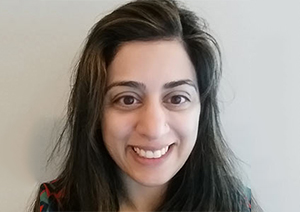
Dr. Kiran Pohar ManhasJob title: Assistant Scientific Director I am the Assistant Scientific Director for the Neurosciences, Rehabilitation, and Vision (NRV) Strategic Clinical NetworkTM (SCN) at Alberta Health Services (AHS). SCNs are clinical teams of patients, clinicians, leadership and researchers that operate on a system-wide, provincial level to translate evidence into practice and improve care and health outcomes. Very broadly, my role is to build and engage the NRV research community, and, to advance and complete scientific projects relevant to the strategic priorities of the NRV SCN. The former involves capacity building and engagement strategies, while the latter involves diverse responsibilities that span from being the principal investigator, co-investigator, or collaborator on projects. I use diverse methods including knowledge synthesis, qualitative surveys and focus groups, surveys, and secondary data analysis. I most enjoy working on provincial initiatives that support AHS teams to connect research and evidence to clinical practice (e.g. developing standardized clinical pathways). I also appreciate the research and student mentorship opportunities. This position requires all the skills I honed during my post-doctoral HSIF, including skills in communication, dialogue, data analysis, health systems and policy analysis, negotiation, conflict resolution, change management and knowledge translation. This position is the direct result of my HSIF with AHS. During the HSIF, I made connections and completed research salient to AHS organizationally. My network and accomplishments facilitated this opportunity and provide a strong foundation to succeed. My advice to current graduates is to pursue opportunities that will open doors, so you can meet people and show them what you can do! |
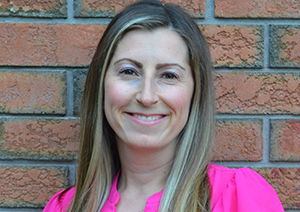
Dr. Stephanie Prince WareJob title: Research Scientist I am a Research Scientist in the Centre for Surveillance and Applied Research at the Public Health Agency of Canada (PHAC). My primary role is developing and leading policy-relevant population health research projects. I also advise and collaborate on intragovernmental and externally-led projects. My work informs science and policy linkages in the PHAC and across governmental departments and with the broader scientific community. My research focuses on the measurement of physical activity and sedentary behaviour, determinants of these behaviours including factors in the built environment, and health behaviour interventions including the evaluation of natural experiments. I really enjoy my job and feel very fortunate that I have the opportunity to do what I love every day – research! The research I undertake has direct and relevant policy implications and being a scientist embedded in the government provides me with first-hand experience seeing the impact of my research. I was also fortunate to undertake my HSI Fellowship with the PHAC. The Fellowship provided me with an incredible opportunity to get an embedded experience working within government. Prior to the Fellowship, most of my career had been in an academic setting and I was interested in seeing what other opportunities might be a good fit for me. My Fellowship allowed me to expand my networks, acquire new skills through formal and informal training, and allowed me to gain insight into the development of policy including the evidence needed, and understanding of surveillance and reporting mechanisms within the Federal government. My best advice to current graduate students thinking about potential career options would be to keep yourself open to all possibilities including those outside of academia; there are many rewarding and awesome opportunities out there. |
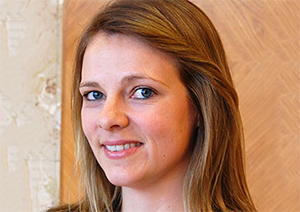
Dr. Margaret SaariJob title: Clinical Scientist “Don’t limit yourself to jobs that currently exist. Identify your strengths, your passion and where you bring the most value to an organization and propose that role. Worst case, they don’t go for it. Best case you get your dream job.” After completing my HSI Fellowship with SE Health, I stepped into my new ‘dream job’ as Clinical Scientist at SE Health. It’s a unique nursing leadership role that bridges my passion for research and professional practice, with a focus on improving people’s health and care. As an embedded clinician researcher, I love being connected to the day-to-day business operations of such a large care delivery organization as it allows for a deeper understanding of the issues facing clients, frontline staff, health leaders and organizations. A typical workday involves meeting with internal and external partners to co-produce research, identify and test solutions, review data analytics and support frontline staff and managers in using data to guide practice. The iterative nature of my work means we can learn quickly from successes and identify opportunities for improvement. Being a part of a social enterprise like SE Health allows me to focus not only on improving our own care and programs, but also broadly sharing the knowledge we gain to improve care for all Canadians. The learning opportunities provided through the HSI Fellowship helped prepare me to hit the ground running. |
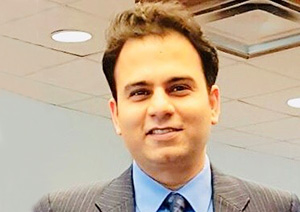
Dr. Asif R. KhowajaJob title: Assistant Professor After completing my HSI Postdoctoral Fellowship with BCPSQC, I made a big transition from BC to ON to join the department of Applied Health Sciences at Brock University. My area of research focuses on the economic evaluation of health care technologies and public health interventions. As part of my fellowship project, I analyzed a large administrative data (14 million records), which increased my confidence in handling complex data. The learning from professional development activities and networking opportunities provided through the HSI fellowship tremendously helped prepare me for this exciting career. In my current role, I am developing- and teaching health economics courses, mentoring trainees, and collaborating with other faculty members to conduct interdisciplinary research. I enjoy working with a multidisciplinary team. My best advice to current graduate students thinking about potential career options would be to have fun and be yourself. Networking and approaching things with a growth mindset are the key to success! |
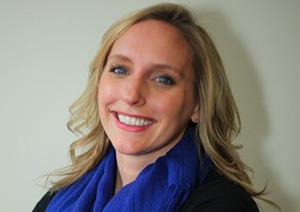
Dr. Allana LeBlancJob title: Epidemiologist/Biostatistician I am an Epidemiologist and Biostatistician with the Global Health and Guidelines Division at the Public Health Agency of Canada (PHAC). My primary role is working with clinicians from the Canadian Task Force on Preventive Healthcare to develop clinical practice guidelines for Canadians. The work we do has a direct impact on the prevention and treatment of disease in Canada. I love seeing being able to follow the evidence from clinical trials all the way to succinct recommendation statements. Previous to working with PHAC, I did my Fellowship with the Ottawa Model for Smoking Cessation team at the University of Ottawa Heart Institute. My project was working on priority setting for messaging around cannabis use during the legalization process. Working with senior management helped build my confidence, ability to manage many projects on tight timelines, and fit a lot of information in a 2-minute elevator pitch. My Fellowship work had a direct impact on my abilities in my current job and I rely on these core competencies on a daily basis. My best advice for current students and recent graduates is to grow your network. Find a mentor (or several) who are willing to discuss new opportunities with you – you don’t know what you don’t know! |
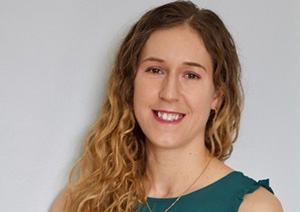
Dr. Jennifer McConnell-NzungaJob title: Analyst I am an Analyst with Statistics Canada and I work at the University of Regina Research Data Centre. In this role I am responsible for the operation of the Research Data Centre, which includes assisting researchers with project proposals, administering access to the centre, consulting on research methods and data, analyzing research output to ensure they respect confidentiality requirements, supervising staff, and participating in various committees to support the Data Access Division of Statistics Canada. I also stay active in my own special research projects and am currently conducting a study using Canadian Population Health Survey data integrated with mortality and hospitalization data. The Research Data Centres Program is a partnership among many different organizations, but on a day-to-day basis I work with the research community at the University of Regina and our team at Statistics Canada. I love that in this role I can be part of local research projects and help students complete their thesis or dissertation research, while also contributing to initiatives that will help shape our program, branch, and National agency. My HSI Fellowship prepared me for this role because I learned how to work with partner organizations, balance different roles and requirements simultaneously, and take leadership of major projects. I also gained new skills in project management and organizational leadership through fellowship professional development opportunities. I would advise graduates to diversify their skills and experience through work with interdisciplinary and intersectoral teams and to pursue professional development activities outside of their area of expertise. |
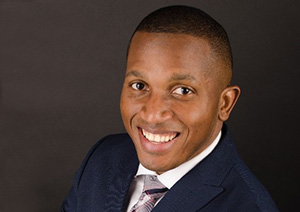
Dr. Clayon HamiltonJob title: Regional Practice Lead in Research and Knowledge Translation (Long-Term Care) I am the Regional Practice Lead in Research and Knowledge Translation at Fraser Health Authority with a focus on quality improvement in long-term care. This role involves working throughout the regional health authority to cultivate scholarly practice, raise the profile and engagement of research and knowledge translation activities, and improve the use of evidence in practice and decision-making. It is a dream come true to be situated at the intersection of research, service planning, care delivery and policy in a learning long-term care system. I thoroughly enjoy working with multiple stakeholders and collaborating to shape the health care system. This role gives me great insight into healthcare challenges and opportunities for improvement at multiple levels of the health system. Using a system-thinking approach, I work to ensure quality improvement initiatives implement sound evidence-informed changes that involve partnering with key actors that include frontline workers, capture relevant outcome measures, and leverage opportunities to scale and spread successful changes across the health authority and province. My time as a fellow at the BC Ministry of Health nurtured my ability to apply my academic skills within a policy and health system setting, maintain scientific integrity, and appreciate the role other factors besides research play in driving health system improvements. I would advise graduate students that, aside from developing strong academic and professional competencies, they should network within or close to their desired career paths. It is also important that graduate students develop the ability to both lead and collaborate. |
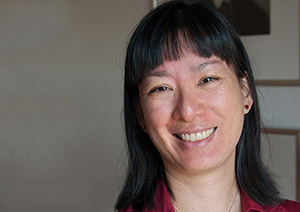
Dr. Ivy ChengJob title: Emergency Physician (SHSC) / Emergency Department Director of Research and Scholarly Activity (SHSC) / Clinician Investigator / Assistant Professor – University of Toronto / Clinical Advisor – Advanced Analytics – CIHI / (Sports Medicine Physician – Cleveland Clinic Canada Midtown) I am an Emergency Physician and Emergency Department Director of Research and Scholarly Activity at Sunnybrook Health Sciences Center (SHSC), as well as Clinician Investigator and Assistant Professor at the University of Toronto. I divide my time between practicing medicine, promoting SHSC’s scholarly activities, and producing academic output. My focus is on emergency department (ED) crowding, high ED users, frail elderly and palliation with a recent pivot to COVID19. My director responsibilities at SHSC are to enable and promote our department’s scholarly output. To do so, I am building an interprofessional network with academic educators, quality improvement specialists, researchers and health care providers. What I enjoy most about my job is the collaboration and networking. I like helping others achieve their academic goals and being a Clinician Investigator, I have continued local, national and international collaborations (Sweden, Australia) with fellow researchers. I trained and have worked at Sunnybrook for more than 20 years. I value the quality of care we provide and my colleagues, and I am committed to contributing to Sunnybrook’s strategic plan. HSIF’s core competency training is essential for the director role, which requires leadership, networking, communication, and management skills. To navigate within the academic spectra, doctoral training is important. Being a clinician provides context and understanding of the organization’s culture. I would fully encourage graduate students to become an embedded researcher, and the HSIF will prepare you for this! |
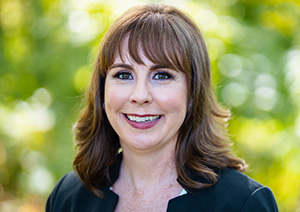
Dr. Melissa NorthwoodJob title: Assistant Professor I am an assistant professor in the School of Nursing at McMaster University in Hamilton, Ontario. In my role, I teach in the undergraduate Bachelor of Science in Nursing program and conduct a program of research on health-care system integration for older adults with clinical complexity and their family caregivers. My goal is to conduct highly embedded research with health- and social-care partners to improve not only the well-being of older adults and their caregivers but also the nursing care of older adults and the integration of the health-care system. My vision and preparation to undertake this program of research was influenced by my experiences as a HSI Fellow with the research centre of a national home-care agency. In my fellowship, I had the opportunity to learn how to translate research to home-care providers and collaborate with the interprofessional team on research that would inform their clinical practice in new models of care delivery. As well, with the support of my academic HSIF supervisor at the University of Waterloo, I was able to secure grants to undertake projects implementing a COVID surveillance screener in community support and specialized geriatric services. I also developed a network of interprofessional researchers, leaders, and clinicians— including other HSI Fellows—with whom I anticipate many future collaborations. I would highly recommend this type of post-doctoral experience to other graduate students to learn to create knowledge that is translatable and valuable to health-care system improvement efforts. |
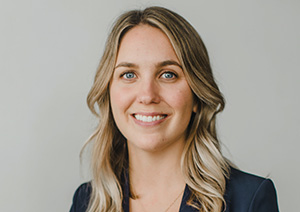
Dr. Christine CassidyJob title: Assistant Professor I am an Assistant Professor in the School of Nursing at Dalhousie University and Affiliate Scientist at IWK Health. I am in a tenure-track position, which means my work focuses on research, teaching, and service (to the university, community, and nursing profession). A typical day for me includes a mix of these three areas; however, most of my time is dedicated to research. I love the autonomy, interdisciplinary collaboration, and continuous learning that is inherent with a faculty position. My favourite part is working with graduate students and supporting them in their own academic journey – it feels like I am repaying the favour to the wonderful mentors I’ve had in my career. My HSI fellowship was with UOttawa and IWK Health and focused on integrated knowledge translation and implementing evidence-based practices. As I transitioned to an Assistant Professor in Fall 2019, my research program has developed from my existing partnership with IWK Health. My HSI supervisor and I still hold of recurring “HSI Fellowship Mentorship Meetings” to discuss the current issues and co-design research studies based on the priorities at IWK Health. The HSI fellowship provided the time and space to build a strong foundation of skills in leadership, co-production, collaboration, and facilitation. I encourage current graduate students to take the time to develop these professional skills that will serve them well in a variety of career paths. |
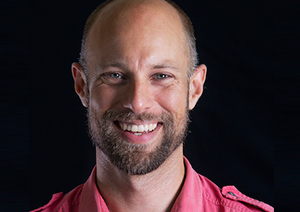
Dr. Matthew LeyenaarJob title: Director, Emergency Health Services I began my career working as a paramedic in Eastern Ontario – having had the experience of “riding with the ambulance” as a high school co-op student. I completed a BSc in Geomatics from Carleton University (2012) part-time and began to explore spatial-temporal patterns of repeated users of paramedic services. My interest in health system access and utilization attracted me to McMaster University where I completed an MA in Geography (2015) before entering the Health Research Methodology PhD program. I completed my PhD in 2020 in the Health Services Research stream by investigating assessment practices in community paramedicine programs. During my PhD I was awarded an inter-disciplinary fellowship by the Canadian Frailty Network and a Mitacs Accelerate internship prior to my Health System Impact Fellowship. I have also gained broad experience through participation in numerous committees and working groups. I thoroughly enjoy participating in the McNally Project—a group of paramedic researchers that strive to improve research capacity in Canadian paramedicine. In 2019, I received the Paramedic Association of Canada’s Award for Excellence for Innovation and Research. My HSIF led directly to employment as the first Executive Director of the Ontario Community Paramedicine Secretariat. Presently, I am the Director of Emergency Health Services with the PEI Department of Health and Wellness. |
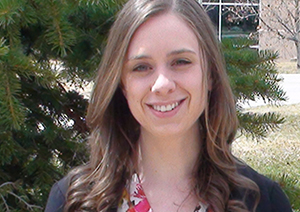
Dr. Natasha L. GallantJob title: Assistant Professor I am an Assistant Professor in the Department of Psychology at the University of Regina. As the Director of the Psychology of Aging Laboratory, I have a growing program of research aimed at meaningfully improving the quality of life of Canada's aging population. Much of my day involves meeting with researchers, practitioners, and policymakers working with aging populations as well as mentoring trainees on the nuts and bolts of interdisciplinary and impact-oriented research within the health sector. While I spend about 50% of my time doing this research, I spend the other 50% of my time teaching courses on clinical and health psychology as well as contributing to committee work at the department and faculty level. Before I began my position at the University of Regina, my Health System Impact Fellowship with the Saskatchewan Health Authority provided me with the opportunity to gain a deeper understanding of the long-term care systems in Saskatchewan and across Canada. One of the most valuable skills I developed was leading change within health systems. I also gained insights into the way in which policies are developed, implemented, and evaluated and the intersection between policy and research. My fellowship experiences provided me with the foundation that I needed to ensure that my program of research moved beyond the walls of academia to have real-world impact on the lives of older Canadians. I encourage incoming fellows to embrace the possibilities that come from connecting with folks from vastly different disciplines than yours. |
- Date modified: